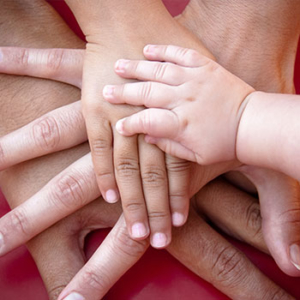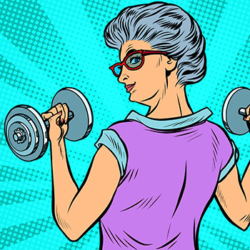Economist Thomas Sowell teaches, “There are no solutions, there are only trade-offs; and you try to get the best trade-off you can get, that’s all you can hope for.” Expressed similarly in the proverb, “You can’t have your cake and eat it,” desired options often conflict with one another.
teaches, “There are no solutions, there are only trade-offs; and you try to get the best trade-off you can get, that’s all you can hope for.” Expressed similarly in the proverb, “You can’t have your cake and eat it,” desired options often conflict with one another.
I was explaining this to my 14-year-old son recently. The prettiest girl is unlikely to be the smartest, kindest, most athletic, bravest, and most congenial at the same time. Track stars don’t read while racing. Jordan is not Picasso. I can’t buy a new car and invest the same sum of money it costs for one. (For everyone who gives me a hard time about my beat-up Suburban!) Try to lead and follow simultaneously. You’ll end up spinning around in circles.
Everywhere you look, trade-offs are evident.
Higher returns with no risk? Athletic prowess with no training? Wealth with no work? Good kids with no guidance? Higher productivity with no incentives? Printing money without pain? What is the solution for someone who is chronically tired? Easy, get more sleep, right? What if that person is a hardworking, single mom struggling to make ends meet, sacrificing for her children to provide them with a better opportunity?
What if sleeping more means she can’t help with homework as much? What if it means she’ll lose her second job? The trade-off required for a time may be less sleep. And for that noble parent, it may be worth it. Every progressive “solution” changes the game. It’s a new iteration of trade-offs. Homeowners on a budget understand this well. Cooking in a kitchen fit for Martha Stewart with no air conditioning is envied by no one. A man cave fit for a king is not relaxing when the roof leaks. As enviable as Tom Brady’s life might be from afar, there are trade-offs for his success. Winning Super Bowls over the age of 40 is hard enough on its own. It doesn’t remove the challenges of also being a good father and husband in a blended family; it makes them herculean.
 While there are exceptions, wealth accumulation generally demands frugality.
While there are exceptions, wealth accumulation generally demands frugality.
You have to save more than you make. It makes no sense to complain that you make too little. You simply don’t make enough money to support your lifestyle AND accumulate the wealth you desire. In order to preserve wealth, earnings must keep pace with spending. In order to enhance purchasing power, growth must exceed inflation. Before nodding yourself to sleep in agreement, let’s go deeper. Why are you accumulating wealth in the first place?
So you can retire? Doing what? Going where?
Does your spouse envision something different? You might want to have that conversation sooner rather than later. The trade-off for pursuing retirement too early may be more than you bargained for.
Sacrificing health, family, and friends to get there too soon may not be a wise trade-off.
It doesn’t make early retirement a bad thing. It just means that even good things necessitate trade-offs and too much of a good thing can be a bad thing.
It may be possible to learn a new language. It is impossible to learn a new language AND binge-watch shows on Netflix each week. You may have time to volunteer for your church or charitable group. You don’t have time for that AND three hours of cable news daily.
 What about your legacy?
What about your legacy?
You leave more than wealth and a casket behind. Leaving a meaningful inheritance to your children may be a noble goal, but it won’t earn any “Dad of the Year” awards post-mortem. What is the optimal number of soccer games worth missing? Prioritizing our time is not an easy task. Kids and grandkids want quality time more than your career success. It doesn’t mean emphasizing both is impossible, but you have a limited amount of time, capacity, and resources. My uncle’s eulogy of my Granddad will always resonate with me. “He was a great man, but he was a good man.” My interpretation—he was successful…but not too successful. He turned down a great career opportunity early on in life, which would have required moving his family from West Virginia to New York.
His father had died young, and he moved a lot as a child. He had already decided never to move his wife and four children for career advancement, and he never did. The trade-off—he died at 92 with less money…and more love.
One of my clients passed away recently, and her service was packed. This woman was also loved. The idea that impressed upon me personally was to think about how I need to live my life so that my funeral is standing room only.
One of the trade-offs might be a smaller inheritance for my kids. I hope they still love me as much as my Granddad’s kids loved him!
Before my wife and I had children, we went through a study at church entitled, “Why can’t you be normal like me?” Now there’s a feeling that everyone in the world can relate to. Everyone has to solve their own puzzle, which is this—determining and constantly tweaking the optimal set of trade-offs. Solutions can be found in arithmetic, think tanks, and the minds of politicians and egomaniacs. But there are no unicorns in the real world.
Trade-offs exist in reality, and the optimal ones in our personal lives, families, businesses, churches, government, and investment portfolios require compromise, truth-seeking, discipline, courage, humility, prayerfulness, service, and sacrifice. Hope for better outcomes demands that more of us see through a lens of constraint, as Thomas Sowell would say. The Garden of Eden has been spoiled. Utopia will always be a myth. The Holy Grail is to realize it doesn’t exist. Contentment is a fragile thing. It didn’t exist in the good, old days. It isn’t something to long for when the perfect set of circumstances finally coalesce. But this doesn’t mean a wonderful, balanced life is not within your grasp.
October 2022




